Tongue Ties
Yolanda Castaño
translated by Carys Evans-Corrales
“What’s wrong here is that we don’t know
how to sell ourselves,” your fellow tenants
would always complain.
But when that guy who really had a handle on it
moved into Apartment B, fifth floor,
the whole building soon began to stone him from their little
balconies.
A cowering disc. Appropriating hens.
If all of our imaginary fades away, where then
are the organs with which we forget?
To raise, it took multitudes;
to demolish: just a handful of folks.
*
PRETENDING THAT THE PAIN SHE FEELS IS PAIN
My looks suggest I like
things that I do not.
Everyone speaks through
closed lips.
As does this.
The walls of a grotto where, ten thousand years ago,
someone sullies the natural essence of the stone.
Coins, alternating current,
a girl born with beauty in her genes,
pock-marked by hang-ups.
Like an orgasm in Hedy Lamarr, like Nikola Tesla’s eyes.
A country where one needn’t be,
but can merely
appear … Read More »
Interview with Roberto Jacoby
by Reinaldo Laddaga
translation by Jane Brodie
Ana Longoni put it so well that I will just copy a passage from her introduction to essays by Roberto Jacoby and other documents related to his work collected in an indispensable book published on the occasion of El deseo nace del derrumbe,the Roberto Jacoby retrospective held a few years ago at the Museo Reina Sofía in Madrid. It says:
It’s not easy to come up with even one “avant-garde scene” in Argentine art since the sixties that did not have him at the forefront. RJ has been at the heart (or in the brain?) of countless milestones (many of them now mythical) of Argentine culture and art from the last half century. The list is impressive: in 1966, the Arte de los Medios group, now recognized internationally as … Read More »
The Pizarro Sisters
Juan Álvarez
translated by Heather Cleary
“What,” I said. That was how I answered the phone then. It was a forceful what—scrappy, combative. But combative isn’t quite the word, because my greeting was always followed by the desire to be left alone. The way I answered the phone had to do with a few demoralizing years misspent in Mexico working as a reader for a commercial publishing house, and also with all those sniveling Colombians who say Aló? and then launch into one story after another like idiot nightingales in a cage.
A voice on the other end of the line said hello.
“Yeah, what?” I repeated.
“Hello?” repeated the voice.
This kind of game isn’t my thing. I cut right to the chase.
“Who is this? What do you want?”
“Galvareza?” The voice asked, timidly.
“That’s right.”
“My name is Estela Lara. I’m María José and María del … Read More »
Daniela Lima
translated by Leah Leone
Diary of Vienna
A young boy carries a bucket of water. Its weight seems somehow lightened by the belief that the desiccated tree will come back to life if watered every day. The end of the story is less important than the image of his persistence—and his faith. I cannot conceive of anything more idiotic than faith, especially with respect to faits accomplis. The tree is dead. The feeling I have is that death appropriates everything, as if taking something back something that had been his all along.
It is impossible to halt the processes that take over the body, after death. The body stops being a body, after death. Death arrogates the deepest, most intimate spaces. The darkness is complete, the silence, the body that continues but does not go on, after death. I am too … Read More »
I’ve Lost Everything I Loved (excerpt)
from J’ai perdu tout ce que j’aimais by Sacha Sperling
translated by Addie Leak
I had decided that my name would be Sacha Sperling and that my life would be dazzling and spectacular.
I’d understood that the only way to exist was to become someone else.
I’d written a book.
The book was a success.
It was translated into languages I didn’t speak.
For two years, the foreign versions accumulated in my bookcase. My face was on some; on others, young Asian boys in suggestive poses. Most of the covers looked like the anti-tobacco posters stuck to the walls of school infirmaries.
The book was simple. It was a bunch of scenes telling the story of a lost teenager in love with his best friend. A fourteen-year-old boy almost mechanically recounting the dissolute lives of his … Read More »
Vincent Toro
A circular path is carved through your front yard.
Pink sinkholes gather in your medicine
cabinet. You exalt busted blenders like sophisms
scrawled by retired scholars.
Your life has become a shy puzzle,
a canyon of foreclosures,
an abandoned fish market.
The world has accused you of not being a world,
of loving meaningless songs,
and you have responded by raising your children to unravel
spools of red tape across cities of wax.
The promise … Read More »
Mar del Plata
Rosario Bléfari
translated by Hilary Levinson
We’re standing in the plaza, watching the man who makes ashtrays in just a minute or two. The scent of freshly burned wood. The sound of the carving: the impact from the blow that splits the wood into pieces. Wood chips flying. Sawdust accumulating on the pavement. A secret understanding of figure and ground—knowing what needs to be removed in order to read what’s left in relief. The blowtorch used like a paintbrush. It’s nonstop entertainment because it lasts for a minute, and then it starts over again and there is always somebody ready to ask for the next one. I think about what name I would carve into the wood but I don’t smoke enough to have an ashtray with my name, nor do I have a relationship with anyone that is worthy … Read More »
An American Poet’s Dream: an interview with David Shook
Interview and introduction by Pola Oloixarac
translated by Heather Cleary
A young professor of literature in Los Angeles collects funding and poems online in order to make his dream a reality: he wants to fly over the territory, dropping poems like bombs. He believes that, in light of the recent history of the United States, cleaving the air with his own drone is the best way to protect poetry: everything else can collapse—NASA can close its doors and employees of the State can fall victim to the shutdown—but military programs remain intact, the drones still carry out their secret missions. By joining with these unmanned vehicles, poetry refuses to capitulate, David muses, twirling his long connoisseur moustache.
The son of preachers from the heart of Texas, David Shook grew up having faith in the spoken word. He studied the … Read More »
On Translating a Translation
Adam Z. Levy
For all the theories of translation one disavows or keeps tacked above the bed, there remain certain unscientific gut-level questions like: Have I gone too far? Have I gone far enough? During the year that I spent working on Hungarian writer Gábor Schein’s first novel, The Book of Mordechai, I approached my author often with such questions. We met on Friday evenings to drink fizzy lemonades at an outdoor café in the Budapest district where we both lived. If it is possible to condense a year’s worth of meetings in a single phrase, it might be most fitting to call them dry interrogations: I pointed to places, in my own text and in the original, and asked whether I had understood the implications of this word or that phrase. It is one of the privileges of … Read More »
Passagem Literária da Consolação [são paulo]
Julián Fuks
translated by Sarah Bruni
Call it bookstore anxiety disorder. I know I’m not the first to suffer from this affliction, and I won’t be the last. This particular illness should be described in some list of new pathologies—at once intense and subtle, it can attack anyone wandering amid long shelves of shiny, attractive volumes. Nausea, maybe, an angst whose cause is difficult to name: it’s something in the exaggerated order of the books, their eagerness, something in their obvious hierarchy. The larger the store, the clearer its windows, the stronger the feeling—although even in airport bookstores, this malaise can be unexpectedly intense.
I’m sure that this phenomenon has spread to a hundred countries, but São Paulo is one of its origins. Forced to shop at big chains and impassable megastores, the city’s last remaining literate residents are … Read More »

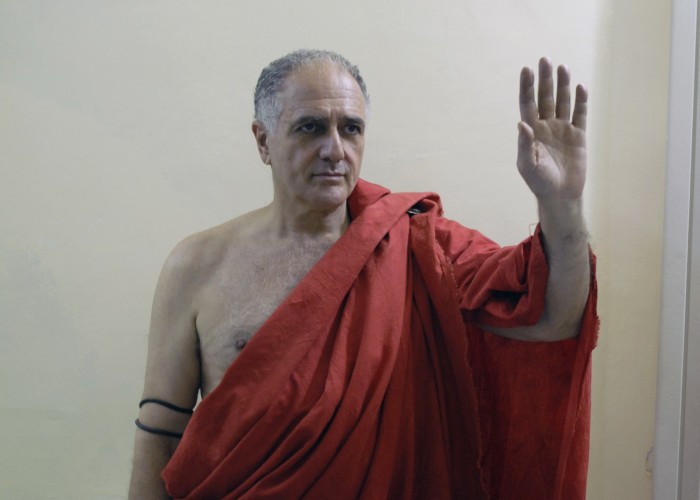

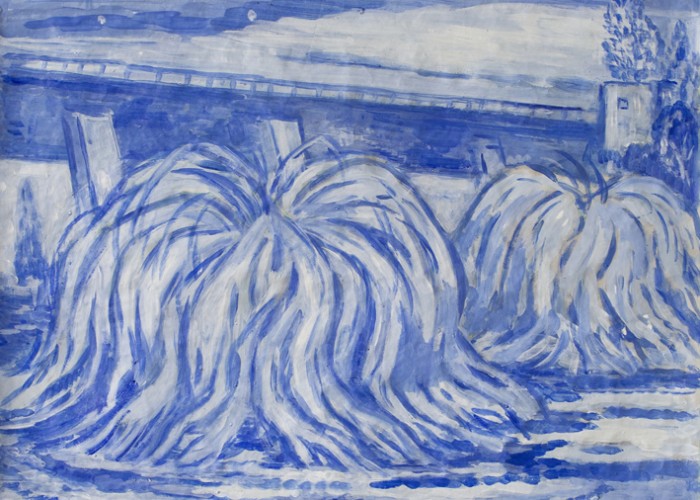
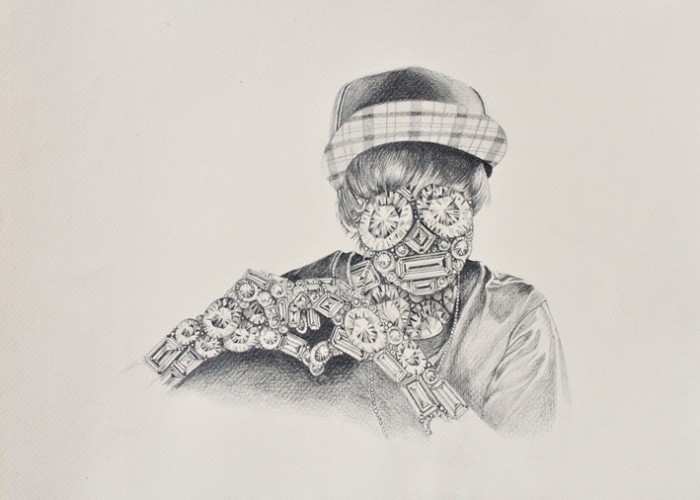
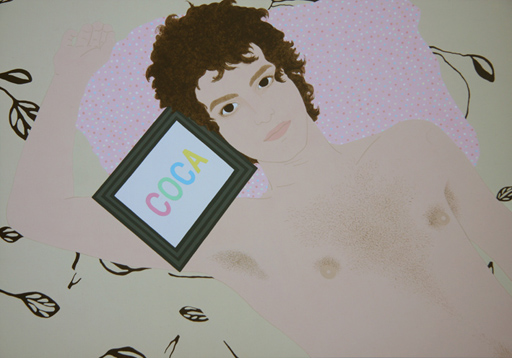

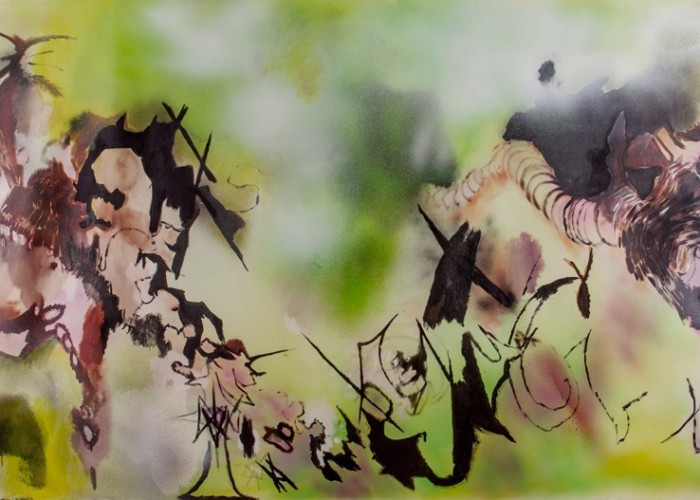

![Passagem Literária da Consolação [são paulo]](http://www.buenosairesreview.org/wp-content/uploads/fuera-700x500.jpg)



 sending...
sending...